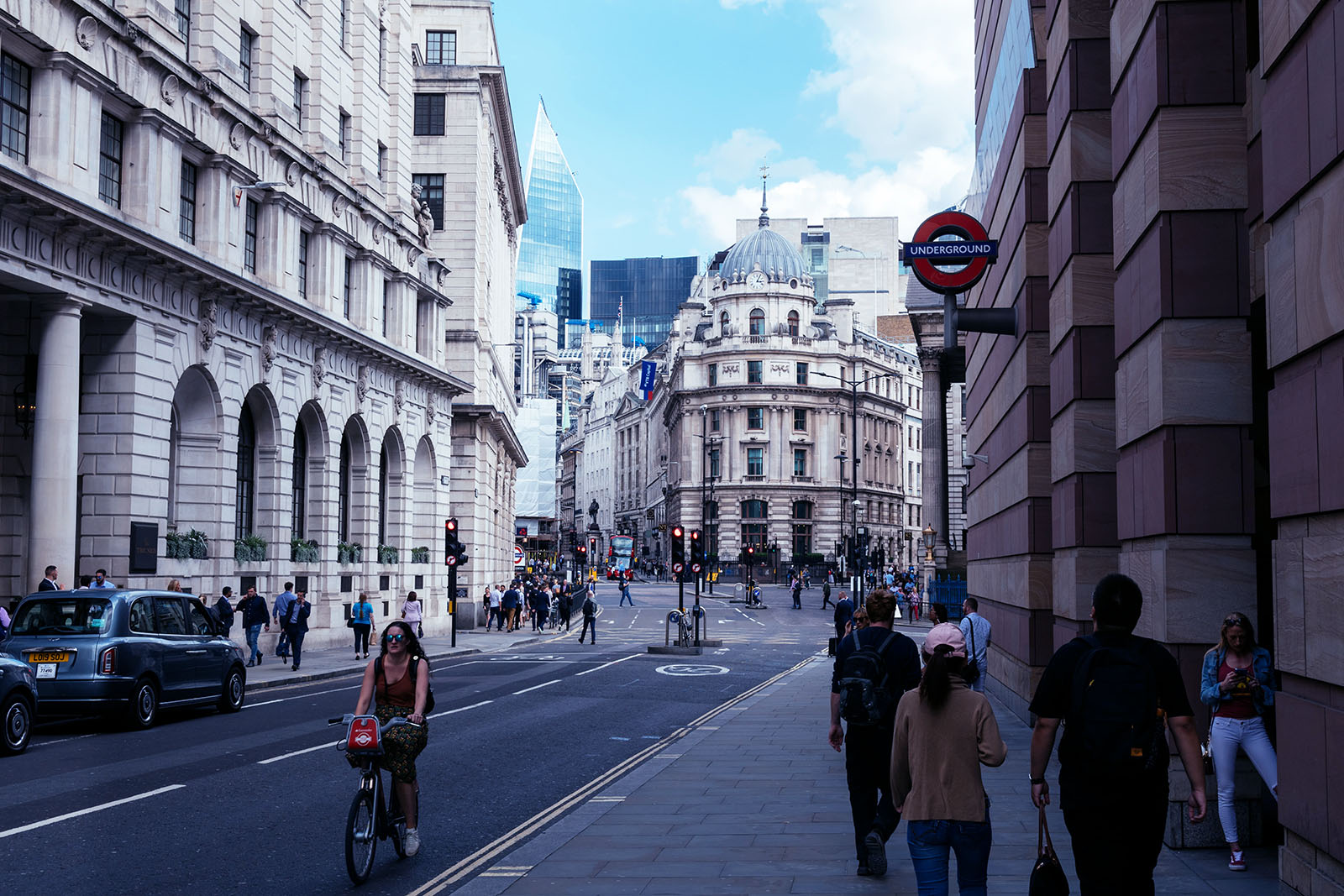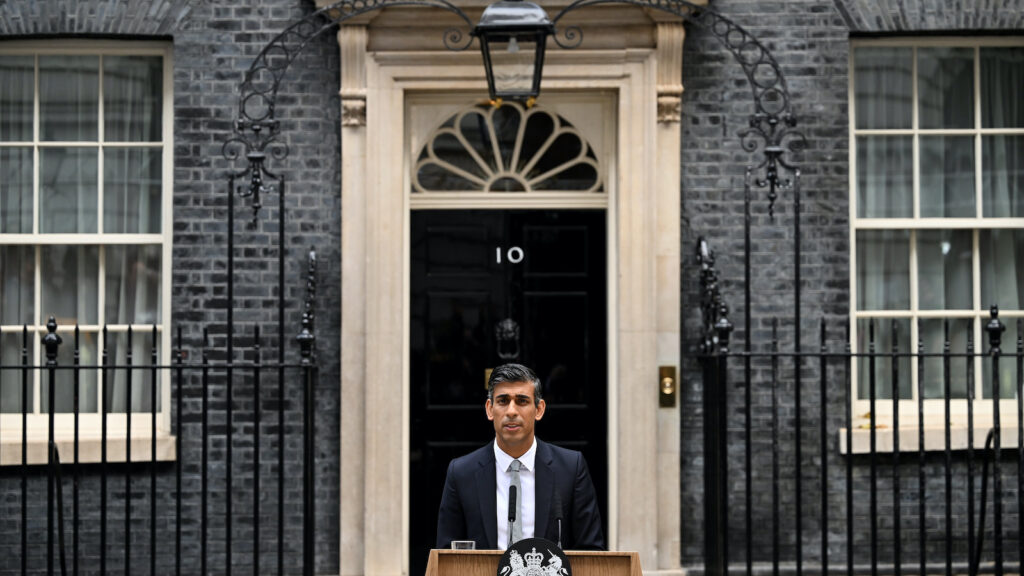
A busy street in the City of London. In a few years, firms that have invested in the U.K. might start to relocate to within the European Union.
Photo: Unsplash
In the second of two articles looking at where Brexit is heading, professor Anand Menon, director of The U.K. in a Changing Europe program and professor of European politics and foreign affairs at King’s College London, analyses the impact Brexit is likely to have on trade over the next five years.
To read the first part of professor Menon’s interview with BRINK, click here.
BRINK: If you look ahead five years, what do you think the British economy and the economic relationship with Europe will be like?
MENON: With COVID and the lockdown, within a year and a half or two years, you might get back to roughly the same levels of employment and growth as you were at pre-lockdown. There are a lot of ifs there, but the difference between that and Brexit is that the Brexit impact will keep on going. Even in the event that the UK signs the sort of deal I spoke about, we are still talking about a significant impact on the British economy.
The Brexit impact will be ongoing — when firms start thinking about their next investments, they might start thinking, would it be better to relocate this to within the European Union?
Forecasts put it at between 5% and 7% of GDP in 10 years’ time. And those impacts will be different to the COVID impact. So, for instance, one of the amazing things, as far as I’m concerned, about the lockdown has been that despite all the disruption and queuing, once you get into the supermarket, all the food you could have wanted is there. The food supply chains have kept working, and the price of food hasn’t really changed.
In the event of a no deal Brexit, which is still a possibility, you will find that there are things getting held up at borders because of checks, particularly on animal and plant products. And there might be tariffs, which will jack food prices up. So there are ways in which the Brexit impact will be different from the COVID impact.
No Guarantees on Manufacturing Investment
The other big thing I would say going forward is that a lot of firms that have invested in the United Kingdom, partly because of the access the U.K. gives them to the single market, aren’t suddenly going to shut up shop and go home because of some costs. If you think about Nissan or Ford or Peugeot, they’ve built car manufacturing plants here, and they will see out the current line of production.
But in two, three, four years’ time, when they’re thinking about their next investments — at that point, they might start thinking, would it be better to relocate this to within the European single market? So the Brexit impact will be ongoing. Its impact in the short- to medium term will be negative, and will come on top of any residual COVID impact.
BRINK: After December 31st, whether or not a trade deal has been agreed, how much will the U.K. abide by the EU’s social and environmental safeguards and standards?
MENON: It’s hard to say, partly because it’s very hard to know what kind of government we have at the moment. We have a conservative party that was elected to power by talking about massive public investment, the need for infrastructure, the need to level up the country and deal with inequality.
What we don’t know is whether the government is planning to deliver on all those, particularly in a post-COVID world with high levels of public debt, whether or not those ambitions will go out of the window.
What I would say is that Prime Minister Boris Johnson won in part by persuading people in a number of Northern and Midland seats, which Labour had traditionally held, that they should vote Conservative this time. And I suspect that the government will be reluctant to start cutting workers’ rights because of a desire not to spook voters in those constituencies.
The interesting question for me is on environmental issues, because I think there is a bit of an incentive for this government to start prioritizing growth over the climate emergency, particularly post-pandemic. So that’s an area where we may see a change, and that’s an area that the EU is very concerned about.
BRINK: Over time, do you think that the U.K. will be pulled back into the orbit of the EU in terms of trading and connections? Or do you think the paths of the U.K. and EU will continue to diverge?
MENON: I think under this government, divergence is far more likely. What we’ve seen is a reluctance, for instance, to take part in joint procurement schemes, which might have helped us get more PPE equipment and things like that.
For political reasons, this British government hasn’t been willing to discuss foreign policy cooperation with the European Union at the moment, and all the signs are that they don’t see this as a real priority. I don’t think, for many political reasons, that this government is going to suddenly say, “We need to work more closely with the European Union. We’ve got to find a way of doing it.”
However, over time, the two sides will come to realize that if they don’t collaborate, they are both weaker and they have to find ways to do it. So, I suspect there is a long period of negotiation to come. It might not be very intense under [Prime Minister] Boris Johnson, but in the future, the two sides are going to have to figure out all those areas we’ve touched on: cooperation on the fight against organized crime, cooperation in foreign policy and what to do about data.
Remember, we live in a world that is very uncertain, where a number of Western countries are recalibrating their attitudes toward China, where European countries are far less trusting of the United States than they’ve been in the past. And that is a curious moment, to say the least, for the U.K. and the EU to start to diverge when it comes to foreign policy.








